Matteo Patrone, the European Bank for Reconstruction and Development’s regional managing director, has been on the job since Nov. 1 — time enough to visit the six countries of his responsibility: Belarus, Moldova, Armenia, Azerbaijan, Georgia and, of course, Ukraine, where he is based.
The EBRD, with 67 stakeholder countries, currently has nearly $4.3 billion invested in 171 active projects in Ukraine, but has cumulatively invested $14.8 billion in 418 projects. This amount is believed to give the EBRD the distinction of being the single largest investor in Ukraine, which has attracted only roughly $50 billion in foreign direct investment since 1991.
Survey after survey shows that corruption and lack of rule of law are the main barriers to investment in Ukraine, making EBRD’s role all the more important for the projects and the people that it invests in.
“This is exactly the core of what we try to do when we make foreign direct investment,” Patrone said in his first interview with the Kyiv Post on Feb. 13, from the EBRD’s headquarters in Kyiv. “Not only do they get our money, we also mitigate the risk of the lack of a level playing field.”
The Italian finance professional, with more than 10 years of EBRD experience, has worked in Romania, Bulgaria and Serbia. He replaces Francis Malige, a French national, as the regional director.
Patrone comes with a clear set of priorities.
He wants to increase the private-sector share of EBRD investments in Ukraine, from the current 43 percent to the organization’s goal of 65 percent. To do so, he sees at least two promising sectors: real estate and food processing. It took a step in this direction by taking a stake in Kyiv-based Horizon Capital’s new $200 million investment fund. “Horizon is really the champion of private equity in the country,” he said.
In doing so, he’d like to reduce EBRD’s 12 percent portfolio of non-performing loans in Ukraine — double the bank’s global average.
And, despite the distracting influence of presidential elections in March and April, and parliamentary ones in October, the EBRD will be pushing Ukraine’s political leaders to keep making broader structural changes designed to make Ukraine a more attractive place for foreign direct investment. Among these reforms are privatization and improved governance of state-owned firms.
One part of that drive is to find a new business ombudsman to replace Algirdas Semeta, the Lithuanian who has held the post since 2015. Semeta and his 14-member staff, with a budget of $1.5 million financed through multiple donors, have won praise for improving the business climate by helping investors resolve disputes with the Ukrainian government. The EBRD also supports the National Investment Council.
The current portfolio of EBRD investment breaks down this way: 37 percent in infrastructure; 27 percent in energy; 25 percent in industry, commerce and agriculture; and 11 percent in financial institutions.
The EBRD doesn’t invest in independent media, a sector dominated in Ukraine by oligarchs. “We don’t do that,’ Patrone said. “It’s not a business for us, really.”
Sector by sector, however, the EBRD faces huge opportunities and challenges in Ukraine alone.
Infrastructure — 37%
Ukraine has substandard roads, rails, ports and airports. The EBRD’s rationale for public-sector investment in this area is “creating conditions for the development of the private sector,” Patrone said.
With Russia taking control of the Azov Sea, the major Ukrainian port cities of Mariupol and Berdyansk shift more to the railways and roadways instead of the sea to transport steel, grain and other products.
The European Investment Bank is trying to find partners for a $1.5 billion investment to improve Azov Sea area infrastructure.
“The entire situation around Mariupol is a priority for us,” Patrone said. “We are working with the city already on a number of municipal projects. The connection between the city and rest of Ukraine is also a priority. We will look at that (EIB project), but the prioritization of projects, in terms of roads and railway connections, needs to come from the borrowers,” namely Ukrzaliznytsia, the state railway administration, and Ukravtodor, the state road builder.
The EBRD has already invested significantly in the electrification of railways, improving links between agricultural areas and Black Sea ports, helping exporters.
Energy — 27%
The EBRD wants to help Ukraine become energy independent by improving efficiency, developing renewable sources and boosting production, as well as improving the corporate governance of state-owned enterprises such as Naftogaz, the energy monopoly.
It’s a sector with many challenges, including what Patrone calls an unsustainably high feed-in solar power tariff offered by the government. In other nations, he said, governments have retroactively reduced the tariff, causing financial losses to EBRD-invested projects. He wants Ukraine to avoid such drastic reductions.
“In theory, yes, it could happen here,” Patrone said of such tariff modifications. “It’s better to have a sustainable compensation regime than one that is too good to be true.”
Moreover, a major dispute is coming to a head over Naftogaz, the state monopoly that produces, transports and sells much of Ukraine’s vital natural gas supply.Naftogaz CEO Andriy Kobolyev has protested against Prime Minister Volodymyr Groysman’s attacks on his pay, which was $1.7 million in 2017, and restrictions on the authority of the company’s independent supervisory board.
Moreover, regional gas distributors — dominated by exiled billionaire oligarch Dmytro Firtash — have racked up $2.2 billion debts to Naftogaz, which by government decree is forced to sell gas to these firms at a discounted price and is not allowed to demand payment upon delivery.
Kobolyev’s complaints also come amid the abrupt departure of Oleg Prokhorenko, the CEO of UkrGasVydobuvannya, the state’s gas production arm, amid acknowledgement that it will not meet the nation’s domestic production goals of 27 billion cubic meters of natural gas annually — up from the roughly 20 billion cubic meters produced annually since 1991. Kobolyev’s future as CEO is also uncertain.
At this stage, Patrone had nothing to say on the topic other than “we are looking into the situation” and “we are very concerned about the situation.”
Industry, commerce and agriculture — 25%
The EBRD has an array of investments in this area, but the sector that stands out as a political and economic priority for Ukraine is its food processing industry. It would be better for Ukraine to develop this sector, rather than just export vast amounts of raw commodities. But so far, there’s not much to talk about.
“It is a promising area where we want to be more present,” Patrone said. “We are looking at investment opportunities.”
Patrone also sees potential in the real estate sector, particularly commercial office space and the hospitality industry. “We’re negotiating some real estate deals,” he said.
Financial institutions: 11%
Ukraine suffered more than $20 billion in banking losses this decade, much of it through unpunished bank fraud as politically-connected insiders pilfered the sector and left taxpayers stuck with the tab.
The good news is that the National Bank of Ukraine has closed down more than half of the nation’s banks, leaving fewer than 100 institutions, and has required more transparency in bank ownership and lending.
The bad news is that non-performing loans by deadbeat borrowers still account for more than half of the sector’s portfolio, making credit scarce and expensive.
Additionally, more than half of the sector is now owned by the state.
“I don’t think there is a quick solution for this,” Patrone said. “It’s going to be painful, slow indeed and, because of that, more sustainable.” But he called it crucial to improve governance of state-owned banks and eventually privatize them so they can “deploy money in the real economy.”
Other hurdles
The EBRD hopes to see progress resume in selling off many of the nation’s 3,000 state-owned enterprises. But with the most lucrative Soviet-era assets already in private hands, the existing portfolio consists of low-value companies or firms that are used by powerful vested interests to enrich themselves, creating fierce political resistance to their sale.
“There are two sides of this story. One is the small privatizations. That is a success story,” he said. “The big privatizations are nowhere to be seen yet.”
While Patrone said that government is “reducing the space for corruption” through competitive public-sector procurement and improved corporate governance, “enforcement is lacking everywhere.”
Against complacency
The countries in which he’s worked are so different that they are hard to compare with each other and with Ukraine, he said. Some, like Bulgaria and Romania, are in the European Union. Others are not.
Ukraine, with more than 42 million people, is the largest nation he’s worked in. He’s taken note of its dynamic private sector and civic society in the short time he’s been here.
He’s noticed “backpedaling in the business environment” in Romania, Bulgaria and Poland, and doesn’t want this to happen in Ukraine.
“I don’t think Ukraine can afford to reverse the reform momentum,” he said. And no matter who wins the presidential election, Ukraine’s political leaders will not be able to backtrack on conditions for loans and grants required by international financial institutions, he said.
“We don’t have a position” about who should win, Patrone said. “We are going to be around no matter who wins.”
The main lesson he’s learned over the years is “there is never room for complacency,” he said. “The moment you start being complacent, things can unravel very quickly.”
You can also highlight the text and press Ctrl + Enter


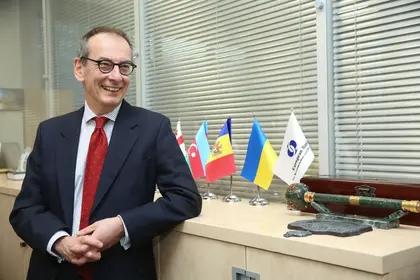
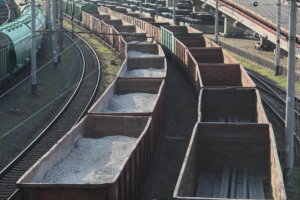

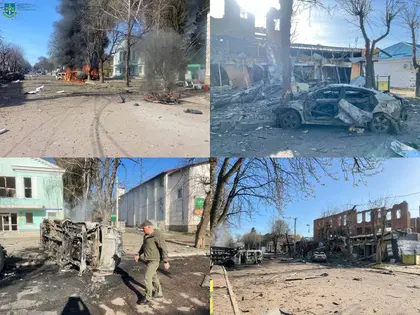
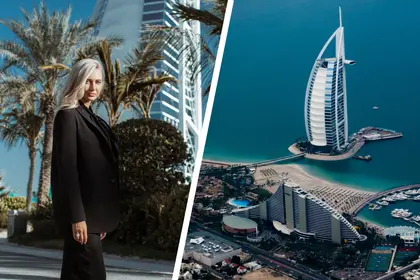
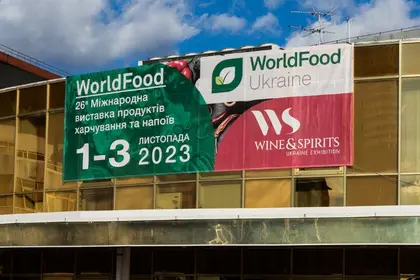
Comments (0)